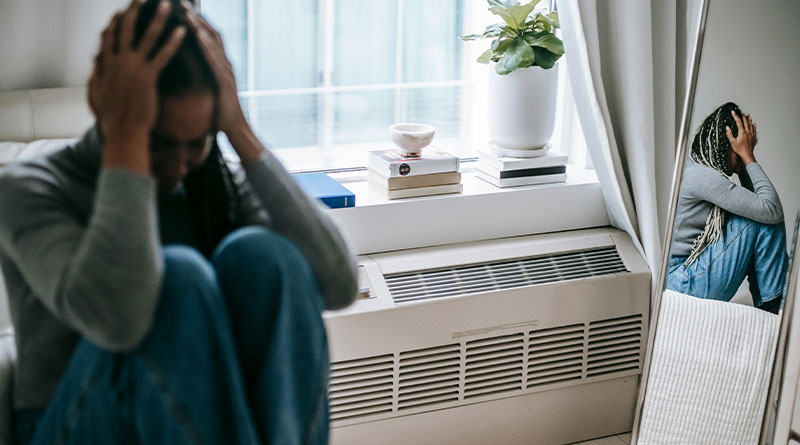Anxiety disorder is a common mental health condition that affects millions of people worldwide. It can manifest in various forms, including generalized anxiety disorder, panic disorder, and social anxiety disorder. While therapy and lifestyle changes are often the first lines of treatment for anxiety, medication can also be an effective option.
This article will explore the top 10 drugs used to treat anxiety disorder, including their benefits, side effects, and potential risks. We will also discuss how these medications work and for which they may be most appropriate.
Also Read: Don’t Let Depression Get The Best of You
Whether you are currently living with anxiety or are seeking information for a loved one, this article will provide valuable insights into the treatment options available.
Find The Best Drugs to Treat Anxiety Disorder
Here below you find the top 10 drugs to treat anxiety disorder;
Selective Serotonin Reuptake Inhibitors (SSRIs)
Selective serotonin reuptake inhibitors (SSRIs) are a class of medications that works by increasing the levels of serotonin in the brain. Serotonin is a chemical messenger that plays a role in regulating mood, and low levels of serotonin have been linked to feelings of anxiety and depression.
SSRIs are considered a first-line treatment for anxiety disorder and are often prescribed as they have fewer side effects than other medications. Examples of SSRIs include fluoxetine, sertraline, and paroxetine.
Serotonin-Norepinephrine Reuptake Inhibitors (SNRIs)
Serotonin-norepinephrine reuptake inhibitors (SNRIs) are a class of medications used to treat anxiety disorders. They increase the levels of two neurotransmitters, serotonin, and norepinephrine, in the brain. Norepinephrine is a chemical messenger that plays a role in regulating mood and stress response.
SNRIs are considered a second-line treatment option for anxiety disorder after SSRIs, and they may be prescribed if SSRIs are not effective or well-tolerated. Examples of SNRIs include venlafaxine, desvenlafaxine, and duloxetine.
Benzodiazepines
Benzodiazepines are a class of medications commonly used to treat anxiety disorders. They enhance the effects of a neurotransmitter called GABA in the brain. GABA is a chemical messenger that helps to reduce the activity of certain nerve cells in the brain, leading to a calming effect.
Benzodiazepines are unique in that they act quickly and have a sedative effect, which can help reduce symptoms of severe anxiety or panic attacks. They are often used as a short-term treatment option for anxiety disorder, but they can be habit-forming and cause side effects such as drowsiness and cognitive impairment.
Examples of benzodiazepines include alprazolam, diazepam, and lorazepam.
Buspirone
Buspirone is an anti-anxiety medication that is used to treat generalized anxiety disorder (GAD). It works by increasing the levels of a neurotransmitter called serotonin in the brain and is considered to be a non-benzodiazepine alternative.
Also Read: Trust Issues
Buspirone takes longer to work than benzodiazepines, typically takes 2-4 weeks to show its full effects, but it is less likely to cause drowsiness, dependence, and withdrawal symptoms.
Tricyclic Antidepressants (TCAs)
Tricyclic antidepressants (TCAs) are widely used to treat anxiety disorders. They work by increasing the levels of neurotransmitters such as serotonin and norepinephrine in the brain. They are considered to be a second-line treatment option after SSRIs and SNRIs and are generally used when those medications are not effective.
Examples of TCAs include imipramine, amitriptyline, and desipramine. They can have side effects such as dry mouth, constipation, blurred vision, and drowsiness.
Monoamine Oxidase Inhibitors (MAOIs)
Monoamine oxidase inhibitors (MAOIs) work by blocking the activity of an enzyme called monoamine oxidase in the brain, which increases the levels of neurotransmitters such as serotonin, norepinephrine, and dopamine.
They are considered to be a third-line treatment option for anxiety disorder, due to the risk of potentially dangerous interactions with certain foods, medications, and dietary supplements. They also require a strict diet while on treatment. Examples of MAOIs include phenelzine, isocarboxazid, and tranylcypromine.
Beta-Blockers
Beta-blockers are a class of medications used to treat anxiety disorder. They work by blocking the effects of the hormone adrenaline, which can reduce the physical symptoms of anxiety such as rapid heart rate, trembling, and sweating. They are considered to be a third-line treatment option for anxiety disorder and are often used in conjunction with other medications.
Examples of beta-blockers include propranolol and atenolol. It’s important to note that beta-blockers don’t treat the underlying emotional symptoms of anxiety, they are only intended to control the physical symptoms.
Also Read: All You Know About Anxiety
Anticonvulsants
Anticonvulsants are a class of medications that are typically used to treat seizures, but they can also be used to treat anxiety disorder. They work by stabilizing the electrical activity of the brain, which can reduce feelings of anxiety. They are considered to be a third-line treatment option for anxiety disorder and are often used in situations where other medications have been ineffective.
Examples of anticonvulsants include Gabapentin and pregabalin. They may have side effects such as drowsiness, dizziness, and coordination problems. It’s important to note that anticonvulsants may take longer to show their full effects, typically 4-8 weeks, compared to other medications used for anxiety disorder.
Pregabalin
Pregabalin is commonly used to treat seizures, but it can also be used to treat anxiety disorder. It works by stabilizing the brain’s electrical activity, which can reduce feelings of anxiety. It is considered a third-line treatment option for anxiety disorder and is often used when other medications have been ineffective.
Pregabalin is an anticonvulsant medication and is similar to Gabapentin, it may have side effects such as drowsiness, dizziness, and coordination problems. It’s important to note that Pregabalin may take longer to show its full effects, typically 4-8 weeks, compared to other medications used for anxiety disorder.
It also has a potential risk of abuse and dependence and should be used under the close supervision of a healthcare professional.
Hydroxyzine
Hydroxyzine is an antihistamine medication that is used to treat anxiety disorder. It works by blocking the effects of histamine, a chemical messenger in the brain that can cause feelings of anxiety and nervousness.
Also Read: Male Performance Anxiety Solutions
Hydroxyzine is considered to be a third-line treatment option for anxiety disorder and is often used in conjunction with other medications. It may have side effects such as drowsiness, dry mouth, and blurred vision. It’s important to note that Hydroxyzine may have a sedative effect, and patients should use caution when operating heavy machinery or driving while taking this medication.
Take Advice From Doctors
It is important to consult with a medical professional before starting any medication mentioned above. They will be able to evaluate your symptoms, rule out any underlying medical conditions, and determine the most appropriate treatment plan for you. It’s also important to inform them about any other medications you are taking or have taken in the past and your medical history.
Remember that medication may not be the only solution, and therapy or lifestyle changes may also be recommended.
Conclusion
In conclusion, there are various medications available to treat anxiety disorder, including SSRIs, SNRIs, Benzodiazepines, Buspirone, TCAs, MAOIs, Beta-blockers, Anticonvulsants, Pregabalin, and Hydroxyzine, each of which work in different ways and have their own potential benefits, side effects, and risks.
FAQs
Q: What are the most common medications used to treat anxiety disorder?
Ans: SSRIs, SNRIs, Benzodiazepines, Buspirone, TCAs, MAOIs, Beta-blockers, Anticonvulsants, Pregabalin, and Hydroxyzine are the most common medications used to treat anxiety disorder.
Q: How do these medications work to reduce anxiety symptoms?
Ans: These medications work by increasing the levels of certain neurotransmitters in the brain or by affecting the electrical activity of the brain, which helps to reduce feelings of anxiety.
Also Read: Various Types of Depression
Q: What are the potential side effects of these medications?
Ans: The potential side effects of these medications can include drowsiness, dry mouth, blurred vision, constipation, dizziness, coordination problems, and other side effects.
Q: Is it safe to use these medications long-term?
Ans: It depends on the medication and the individual, some medications are intended for short-term use and others can be used long-term under the close supervision of a healthcare professional.
Sahil Sachdeva is the Founder of curemedoc.com and a Digital Marketing professional with years of experience. If you need help in Content writing and want to increase your website ranking, connect with him, as he has some premium websites where you can share blogs with DoFollow links and increase your website’s ranking on Google.





